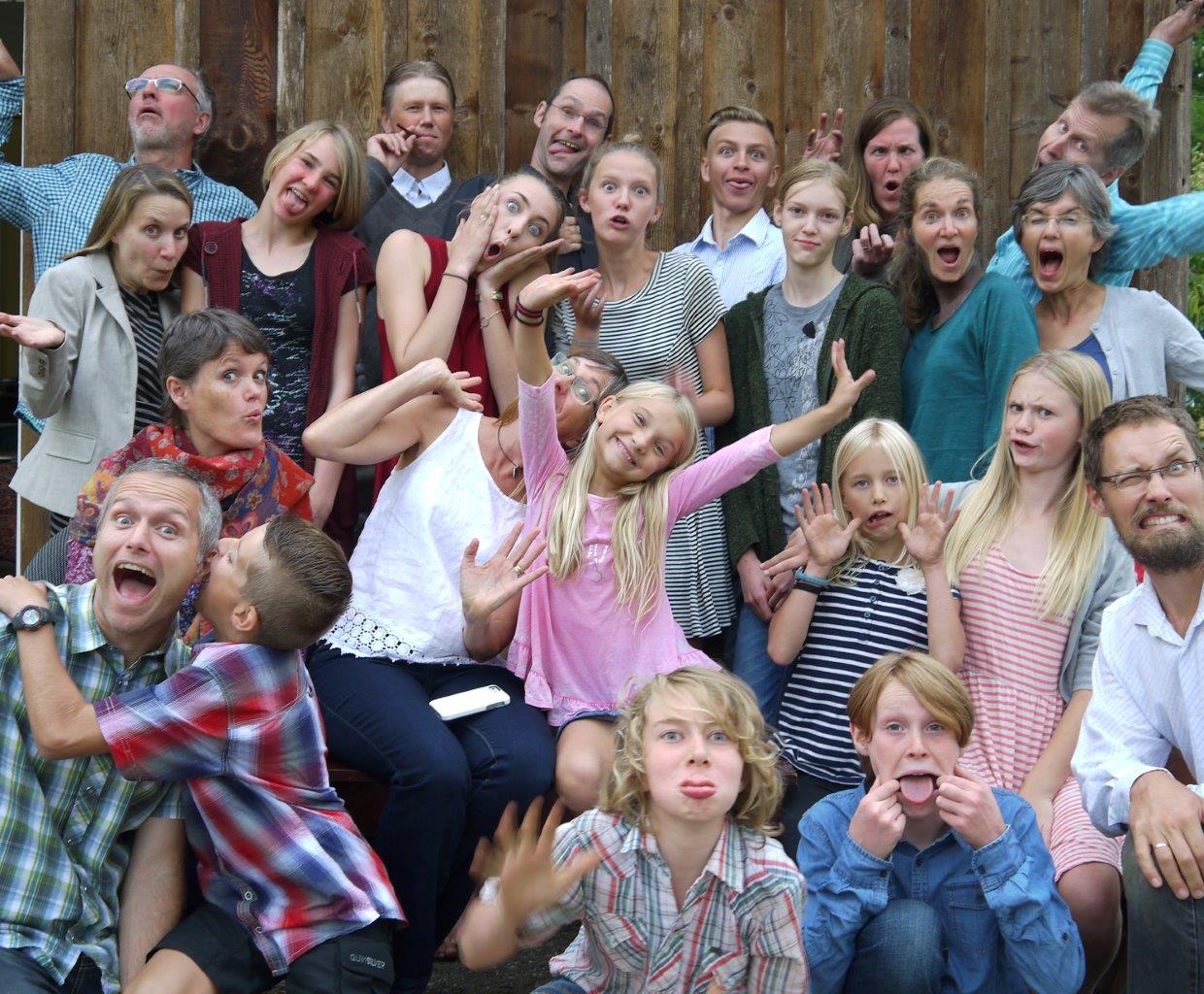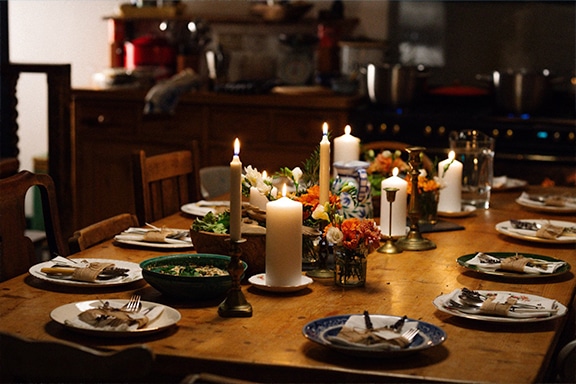The long-haul goodness of community
‘So, how’s the commune?’ asks the man with floppy brown hair. I can tell by his smile he thinks he’s being original.
‘It’s great,’ I answer. ‘But it’s not a commune. It’s a community.’
He laughs. ‘Can’t fool me. Lots of people. Organic gardens. Shared living spaces. Sauna. You’re a commune.’
We’re not! I want to protest. And then I wonder, Why am I feeling so defensive? Why do I so NOT want to be identified as a commune?
I’m sure it has something to do with the most popular caricatures of communes. First, the hippie variety: places roiling with free-love, utopian ideals and hairy-legged women. Or, second, the fundamentalist variety: places rife with rules, head-coverings and dour expressions.
Happily, Kingfisher Farm, my home and the home of 24 others, fits neither of these stereotypes.

The Kingfisher Farm community – just a bunch of ordinary people
Here’s the backstory: About five and a half years ago my husband and I gathered some friends, a few of whom we barely knew, and asked them if they wanted to buy a farm together. (A farm that had formerly served as the A Rocha Environmental Centre we helped start.) It’s a big decision – buying a farm – and even bigger when you’re doing it with people with whom you share no blood ties and, in some cases, very little history. Therefore, we met as a group bi-weekly for about five months to discern. Together we explored if:
a) We liked each other well enough to live together;
b) We shared enough vision and values to make this place more than a glorified playground for our kids, and
c) Did we have enough money to make it work?
On one particular rainy night, we discussed our creation care values. A man in the group (we’ll call him Ralph) argued for environmental standards for our little farm. He chose dish soap as his case study. We would all need to agree to use biodegradable, earth-friendly dish soap, no exceptions. A few of us balked. We had nothing against biodegradable dish soap per se, we just didn’t want our kitchens legislated.
Ralph was flummoxed.
Rick (his real name), gave voice to what the rest of us were trying to articulate. “What the world needs,” said Rick in a thoughtful tone of voice, “is not people who can live united to a high standard. What the world needs is a group of people who can get along, despite their differences.”
Ralph left the conversation disappointed. So disappointed, we later learned, that he hardly slept that night. At our next meeting he announced that his family would be pulling out of the process. They were sorry, it was a very hard decision, but they needed firmer standards. The soap conversation was, evidently, just the tip of the iceberg.
‘Peace takes time,’ wrote Stanley Hauerwas.
This is why I live in community. There’s no walking away from an annoying friend when his signature is scrawled next to yours on the mortgage documents! A commitment to my 24 farm mates over the long haul has created a stability that has opened possibilities to grow in love and forgiveness. We have indeed held each other to our higher ideals, but not in a preachy, finger-pointing way. I have been encouraged, for example, to resist North America’s dominate narrative of consumerism and individualism because I’ve watched my farm mates shop at Value Village and volunteer with refugee claimants and grow vegetables without pesticides or herbicides.
Don’t get me wrong, there have been struggles. Some of our group have lived in very small spaces—one whole family lived in a garage for two years while we built the duplex that would house them. Some have endured long work hours in the gardens while others of us traipsed off to cushy office jobs. Five years of life together means a kaleidoscope of opportunities for misunderstandings and hurt feelings.
But it is in the very challenge of community-living that Christ’s life and teachings have become tangible for me.
Community has shown me that transformation only comes through death—death to the need to control; death to my preference to live isolated from people who bug me; death to self-determination without regard to the web of relationships that is impacted by my decisions.
Community has shown me that unity comes not from uniformity but from a shared life, formed by sweat and sore muscles, and meals shared, and songs sung and prayers prayed.
Community has shown me that the relational life of the Trinity is expressed best in the relational life of people who expect goodwill and hold each other in love, extending grace to those different from ourselves.
And don’t we all want to be held in love?
We are happy for our blogs to be used by third parties on condition that the author is cited and A Rocha International, arocha.org, is credited as the original source. We would be grateful if you could let us know if you have used our material, by emailing [email protected].



